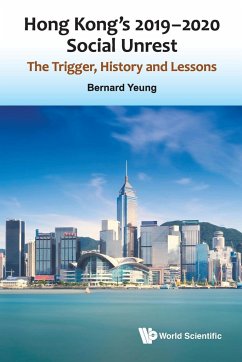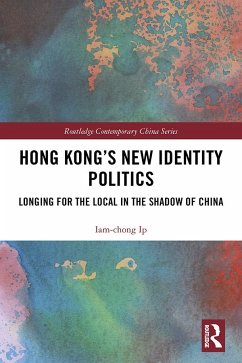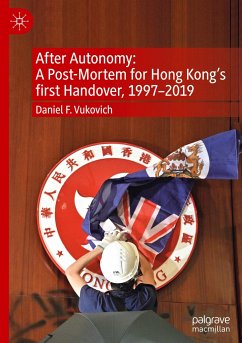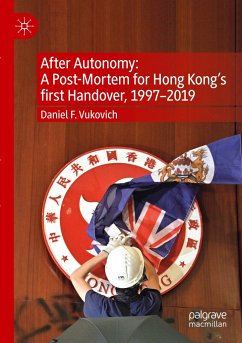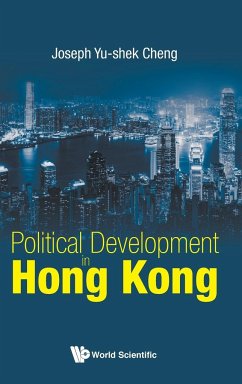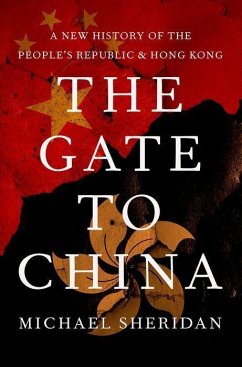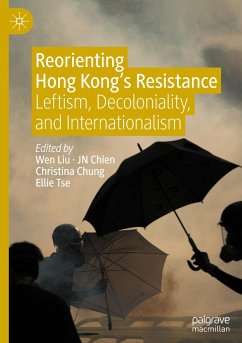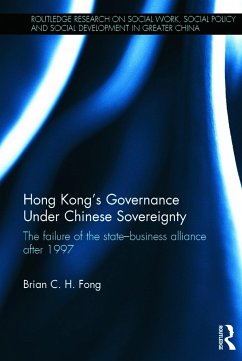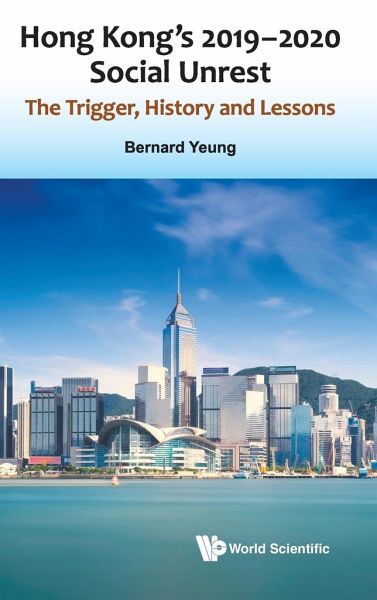
HONG KONG'S 2019-2020 SOCIAL UNREST

PAYBACK Punkte
26 °P sammeln!
This book provides an anatomy of Hong Kong's 2019–2020 social unrest, which has significantly damaged its economy and image. A coalition of Opposition to the Communist Party of China (CPC) emerged in Hong Kong after the 1989 Tiananmen Square Incident. Hong Kong's mini-constitution, the Basic Law, which became effective in 1997, defines "one country, two systems" in Hong Kong but inadvertently installed an "opposition politics" system that the city was unfamiliar with. Freshly out of a colonial system, Hong Kong did not have the socio-ecological system to hold politicians accountable for thei...
This book provides an anatomy of Hong Kong's 2019–2020 social unrest, which has significantly damaged its economy and image. A coalition of Opposition to the Communist Party of China (CPC) emerged in Hong Kong after the 1989 Tiananmen Square Incident. Hong Kong's mini-constitution, the Basic Law, which became effective in 1997, defines "one country, two systems" in Hong Kong but inadvertently installed an "opposition politics" system that the city was unfamiliar with. Freshly out of a colonial system, Hong Kong did not have the socio-ecological system to hold politicians accountable for their policies. For decades, the tug of war between the Opposition and all other politicians delivered incoherent public policies that raised the costs of living and income disparity, while hollowing out economic opportunities in the middle that particularly hurt the younger generations. Meanwhile, the Opposition camp promotes the blame narrative that the CPC is chipping away at Hong Kong's democracy and freedom. While the narrative's empirical evidence is weak and its linkage to Hong Kong's economic grievances is absent, the Opposition camp propagates the narrative relentlessly. Ironically, the Opposition Camp has fallen captive to the narrative in the sense that its legitimacy is now tied with the narrative. Two decades of rallies grounded on the blame narrative have profoundly influenced the development of people who grew up after 1997. Furthermore, the year-long unrest has socialized many more to adopt the narrative. The younger generations are hurt first by inconsistent public policies, and on top of that, the blame narrative that robs them of any coherent social identity; and finally, the unrest further dims their future. Hong Kong now faces the problem of how to re-incorporate a significant portion among its younger generations into mainstream society. This book offers in-depth analyses of the journey, identifies government and societal failures, and suggests long- and short-term policy directions.





